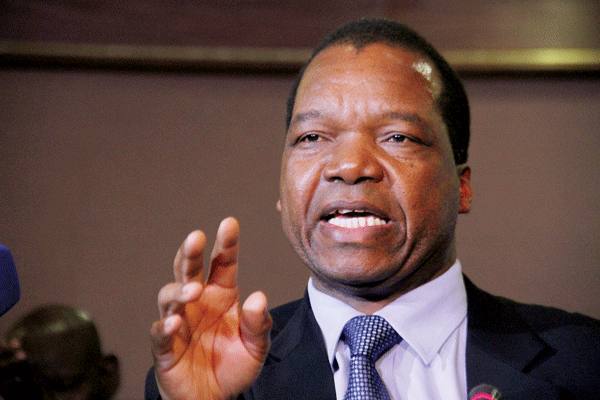
BY MISHMA CHAKANYUKA
LISTED agro-concern TSL Limited says it will delay publishing its audited financial results for the year ended October 31, 2018 pending guidance from the Public Accountants and Auditor’s Board (PAAB) following the recent formalisation of the local currency, RTGS dollars.
Following last month’s monetary policy statement, which merged RTGS balances with bond notes and coins to form a currency called RTGS dollars, Statutory Instrument (SI) 33 of 2019 was gazetted to give the currency legal standing.
In a statement dated March 1, 2019, TSL Limited company secretary James Muchando informed the company’s shareholders that the financial statements for the year ended October 31 had been put on hold.
Muchando said the company’s audited financial results would be published on the last day of this month and consequently postponed its annual general meeting to a later date.
TSL Limited, a listed firm, focuses on logistics, real estate, commodity production and trading in Zimbabwe and the Southern African Development Community.
“The company wishes to inform shareholders that the audit of the consolidated financial statements for the year ended 31 October 2018 is still in progress pending the issuance of guidance from the PAAB on the functional and presentation currency for the reporting,” Muchando said.
“The guidance will take into account the pronouncements made on 20 February, 2019 in the 2019 monetary policy statement and the subsequent codification of the pronouncements under statutory instrument (SI) 33 of 2019 and the Reserve Bank of Zimbabwe exchange control directive to authorised dealers RU 28/2019.”
- Chamisa under fire over US$120K donation
- Mavhunga puts DeMbare into Chibuku quarterfinals
- Pension funds bet on Cabora Bassa oilfields
- Councils defy govt fire tender directive
Keep Reading
Under SI 33 of 2019, section 4 (1), subsections D, it states: “that, for accounting and other purposes, all assets and liabilities that were, immediately before the effective date, valued and expressed in United States dollars (other than assets and liabilities referred to in section 44C(2) of the principal Act) shall on and after the effective date be deemed to be valued in RTGS dollars at a rate of one-to-one to the United States dollar”.
In subsections E and F, it continues to state that: “after the effective date any variance from the opening parity rate shall be determined from time to time by the rate at which authorised dealers under the Exchange Control Act exchange the RTGS dollar for the United States dollar on a willing-seller willing-buyer basis; and…” SI 33 of 2019 reads.
“…that every enactment in which an amount is expressed in United States dollars shall, on the and after effective date, be construed as reference to the RTGS dollar, at parity with the United States dollar, that is to say, at a one-to-one rate.”
Effectively companies are now expected to report on their individual financial performances in RTGS dollars.
PAAB secretary-general Admire Ndurunduru said in light of the pronouncements made in the piece of legislation, they were working on a new guidance framework that would soon be released.
“We are working on a guidance framework in reporting on the currency environment and we will be releasing it to the market soon,” he said.
“I will not give you a date now, but come this time next week you would have received something.”
Ndurunduru said the PAAB was working with financial regulators to draft the new guidance framework.
“We have been talking to all the financial regulators and that includes the RBZ itself, the Insurance and Pensions Commission, the Zimbabwe Stock Exchange and the Securities and Exchange Commission of Zimbabwe,” he added.
Commenting on the same matter, Institute of Chartered Accountants of Zimbabwe, chief executive Gloria Zvaravanhu said her organisation had also given input in the process of crafting the new PAAB guidelines.
“These are the reporting complications which the monetary policy review of 20 February 2019 has sought to address,” she said.
“The introduction of the interbank foreign exchange trading will provide a formal system of accessing foreign currency to those who were not getting allocations previously.
“The interbank trade will also provide an observable exchange rate for the valuation of cash and cash equivalents and assets and liabilities as a whole.
“As we deal with these issues, there is a need to make this a collective responsibility in ensuring that the accounting or other complications faced by the public and private sector are not by design arising from weak governance systems, as this has a huge impact on the country’s fiscal and monetary dynamics.”











